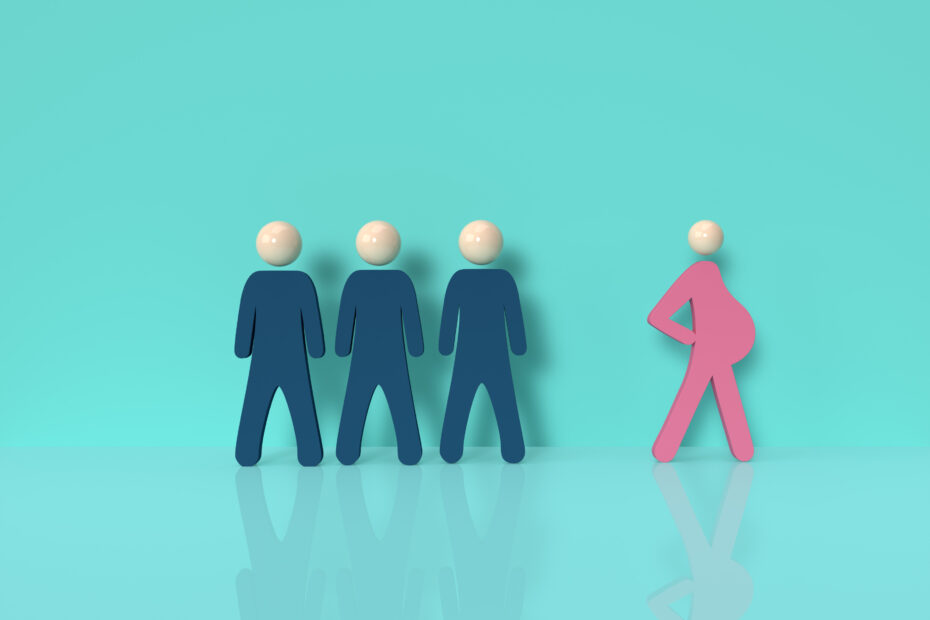We know that COVID-19 has had numerous devastating impacts on women, such as the unequal number of women working in the healthcare sector leading to a higher chance of contracting the virus, as well as domestic violence rates soaring with women being locked down with abusive partners. The experience of being pregnant and giving birth during a global pandemic is another one. Over the past year, there have been countless stories of women feeling isolated, neglected, and even mistreated during their pregnancy journey and I would like to shine a light on why I think this is and the effect it is having on parents-to-be. I will show concrete examples of where a lack of regard for women’s health is showing up in the current COVID-19 guidelines and what this says about society as a whole and how we treat women and pregnant people. I will then offer some potential solutions or action points to try to alleviate some of the problems. There are countless issues right now to be concerned about, and this is only one of them.
What is the situation?
The United Nations International Children’s Emergency Fund (UNICEF) projected at the beginning of the pandemic that “an estimated 116 million babies will be born under the shadow of the COVID-19 pandemic” and that was just a nine-month projection. As we all know, the pandemic has gone and will go on for much longer than that. This is therefore not a niche issue that affects only a handful of people. For each one of those 116 million babies, that’s at least one–and in most cases two parents involved. That’s 348 million people.
The situation varies across countries and hospitals but, essentially, in nearly every context, there are restrictions and hospital policies defining who can accompany the mother or pregnant person during appointments, scans, when in labour and when actually giving birth. Rules vary depending on hospital size, the COVID-19 infection rate in that hospital/country, the amount of exits and entries in the hospital and capacity etc. And guidelines may vary depending on whether it’s a country that actually respects women, although those countries appear to be few and far between. In essence, in the most severe situations, the woman will have to attend all scans and appointments on her own i.e. no partner is allowed in to prevent the spread of the virus and when it comes to the birth, in many cases the partner is only allowed in at the very end for the actual birth and must leave right after.
The World Health Organisation (WHO) has quite literally stated that it “strongly recommends that the emotional, practical and health benefits of having a chosen labour companion are respected and accommodated” and that “the pandemic must not disrupt every woman’s right to high-quality, respectful maternity care.” And so, to go against its recommendations is cause for concern enough – but let’s look deeper at the physical, emotional and societal implications of these restrictions.
“an estimated 116 million babies will be born under the shadow of the COVID-19 pandemic” and that was just a nine-month projection. As we all know, the pandemic has gone and will go on for much longer than that."
Why is it both harmful and ridiculous?
Being pregnant and giving birth is stressful enough in the best of times, even when it’s a healthy pregnancy. Now, pregnancy in the face of a pandemic implies a high probability that there will be some kind of complication. Since the beginning of the pandemic, there have been countless stories of women being told that they don’t have a viable foetus; they are having to hear that alone, and/or the father or partner is having to find out over FaceTime. Moreover, try to imagine having a stillbirth and your partner not being there. Or if they were allowed in for a healthy birth, imagine them having to go home straight away. Either way, this is incredibly difficult both for the partner, and for the mother who has to stay alone in the hospital for a few days while she physically and emotionally recovers post-partum.
The whole rationale behind allowing a partner in at the eleventh hour is also work mentioning. Why not just allow them in for the entire time? It prioritizes the partner’s need for the specific moment of the birth… but what about the mother’s need to have someone with her for the entirety of the stressful process? I also ask the question: what harm is there in bringing another person from the same household in for the entire labour process? They are from the same bubble; it should be assumed that if the mother does not have COVID-19 then the partner does not either.
I’m also disgusted at the standards in terms of what is getting airtime and priority right now i.e. bars and shops. Yes, we can talk about those things in relation to human connection and mental health, but then why aren’t we talking about the devastating impacts on mental health of not allowing partners into hospitals and making someone go through the whole birthing process alone? So many countries have long lists of sectors that have guidelines drawn up for them such as restaurants, shopping, sports, education and the issue of giving birth during a global pandemic and needing adequate support is barely mentioned on any of them. What does that say to those going through the process, that they don’t matter as much as playing sports?
Negative pregnancy and birthing experiences can lead to lifelong trauma that should not be underestimated. The effects this can have on generations to come is not something that should be looked at lightly.
"Negative pregnancy and birthing experiences can lead to lifelong trauma that should not be underestimated. The effects this can have on generations to come is not something that should be looked at lightly."
Why is it happening?
The most obvious answer to this question, in my opinion, is a complete lack of regard for women’s physical and mental health, particularly when it comes to reproductive issues, despite them being the reason why we still have humans populating this earth. This is compounded by the fact that the vast majority of people in decision making positions, whether in government or in hospitals, are older men who, despite being a party to the baby-making process, possess a staggering lack of awareness for what the pregnancy journey actually entails physically and emotionally – and who are less likely to be facing this situation anytime soon.
Furthermore, because there are countless issues that need addressing right now, the ones that affect men and/or greater numbers of the population have received the misdirected attention and energy, and issues that are seemingly less important have fallen by the wayside and have not benefited from eased restrictions.
"People aren't asking to bring their entire families and pets into the hospital with them; all they want is a little compassion and understanding, particularly when that compassion and understanding has been generously applied to other areas of life such as sports or shopping."
What can you do?
This is not an issue that’s going to be solved by one person or one story, but I believe there are a couple of things you could try to at least get this issue on the agenda: Consider writing to key decision makers whether that’s politicians or directors of hospitals/maternity units. What is their official policy or statement on this? Do they even have one? Are they thinking about maternal wellbeing when setting the current guidelines? This is an education opportunity –not that they should need it– but the more people who speak up on this, the more hospitals and society will see how ridiculous it is.
Conclusion:
People aren’t asking to bring their entire families and pets into the hospital with them; all they want is a little compassion and understanding, particularly when that compassion and understanding has been generously applied to other areas of life such as sports or shopping. For many, the pregnancy and birthing journey is absolutely terrifying and, if they have the choice, would like to not do it alone. The long-lasting effects of birthing trauma are severe, and if we respect women and pregnant people at all, we will continue to talk about this and effect actual change. No one is saying we shouldn’t have measures in place to protect against COVID-19. But in some circumstances, those in decision-making positions need to take into account the mental and physical wellbeing of parents, and the needs of other people who experience matters they themselves don’t experience.
 About the author: Lauren Foley, originally from Ireland and now living in Brussels, Belgium, is a Feminist YouTuber and writer. She cares about explaining seemingly controversial topics in a digestible way and making feminism as accessible as possible. Having obtained two law degrees from Ireland and the Netherlands and spending two years working in the European Parliament, Lauren decided to hone in on social impact and so, in addition to her writing and video-making, she consults on various social impact projects to make the world even just a fraction of a better place. She can be reached at contactlaurenfoley.com.
About the author: Lauren Foley, originally from Ireland and now living in Brussels, Belgium, is a Feminist YouTuber and writer. She cares about explaining seemingly controversial topics in a digestible way and making feminism as accessible as possible. Having obtained two law degrees from Ireland and the Netherlands and spending two years working in the European Parliament, Lauren decided to hone in on social impact and so, in addition to her writing and video-making, she consults on various social impact projects to make the world even just a fraction of a better place. She can be reached at contactlaurenfoley.com.
To check out more work from Lauren:
Visit: www.laurenefoley.com
Youtube: https://www.youtube.com/channel/UCiS-xxYUqGJTNro6XG6Q81w?view_as=subscriber
Email: contactlaurenfoley.com
We make youth voices count!
We gather stories and real-time insights and use this for our advocacy with governments, international institutions (like the United Nations),
and donors.
